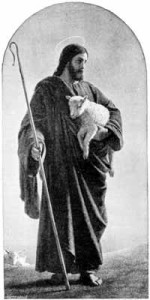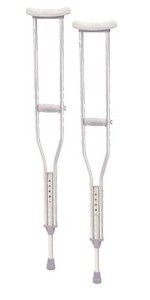George’s old sedan churned dust as it entered the meadow. Dad’s hay-baling equipment broke down occasionally and he called on the hired fix-it man to lend aid. These and many other details converged in the haying enterprise – centering on one aim. Feeding our small herd of cattle through the winter months.
To my knowledge, nothing of the sheep family ever grazed on our property. Perhaps the nearest to that happening was my purchase of a goat years later. I fattened it up on the old property in advance of my son and his bride’s wedding. Their rehearsal dinner featured nyama choma (Swahili for ‘roasted meat’).
The terms sheep and shepherd found their way into our thoughts, however. And often. Even into our prayers. My family’s church culture introduced intriguing words and images like this. Stories to do with sheep and their shepherds drew our family to fondly consider attributes of God. We learned of his nature and of his disposition to us his children. In view of these things, our dad reflected on the blessings that came his way, his good fortune.
A principled man, Clyde Baxter labored for the well-being of his family. The dream of securing employment drove him to ride the freight cars westward. Clyde married Thelma only after establishing himself as a steady wage earner with a stable future. Life carried uncertainties as in every generation. He understood this and stayed focused.
Linking his work ethic to his modest ten grades of schooling, Clyde excelled in the plumbing craft. In the late 50’s he launched a business in Okmulgee. City Plumbing.
His love for rural life stirred. What if? So dad moved his shop to our eighty acre place a mile from town.
Get up, boys. Time for Sunday School and Church. Throughout the busy years Dad did the best he knew to do in affording us a moral and spiritual footing.
Doing so he sensed that his abilities to labor, to plan and to provide rose out of a greater influence. He knew he was not a self-made man. He entered into and drew from a source far greater than his human ingenuity could supply.
The grown-up orphan was humbled. He knew he was fathered. And shepherded.
Dad was reserved. His prayers were private. In my growing-up years it was sounds of my mother’s intercessions that drifted from their room. Mother petitioned the shepherd. When we gathered at mealtime, it was always mother praying our food.
My child imagination resonated with images of a good shepherd. I saw Jesus as shepherd. But more. Jesus was good shepherd – giving his life for the sheep. From my earliest years exploits of a giant-slaying, lion-crippling shepherd boy grabbed me. Then each October Sister Opaline selected Christmas Play characters. I thrilled at arriving for practice one or two seasons cast as a shepherd. A long crook staff in hand I saw myself as a kind but commanding presence. Protector of the defenseless.
Shepherds watching their sheep by night. Wow.
Through vivid Bible scenes I saw Jesus walking away from a gathering of safely-kept lambs and ewes. In the dark it was me the good shepherd went looking for. I was the strayed sheep. I saw myself lying helpless in a distant ravine, wolves prowling nearby.
One Sunday morning in a Bible story time I was invited to welcome the good shepherd into my life. He laid down his life for me, a helpless sheep. Guided into a simple prayer by my teacher I eagerly opened my heart’s door.
Jesus came. His Spirit entered me in his mysterious way. Through simple faith. God was my shepherd. The good shepherd.
Today I know him in a wider range of wonderful titles – Savior. Friend. Teacher. Brother. Comforter. King. Father. Naming a few.
As a limping, sometimes straying sheep, I cherish him still as I first came to know him.
The Lord is my shepherd; I shall not want Psalm 23
©2015 Jerry Lout



